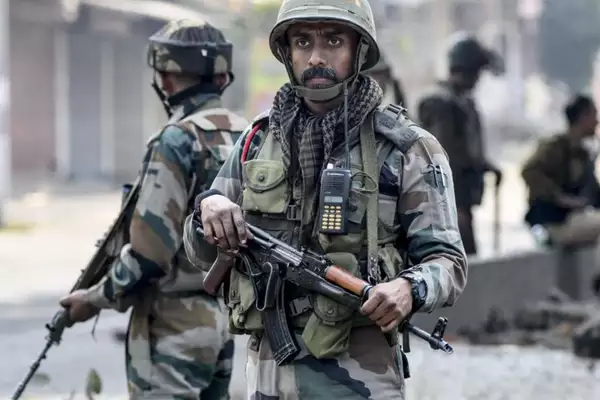The Armed Forces Special Powers – AFSPA Act was recently extended for another six months in several districts of Nagaland and Arunachal Pradesh due to ongoing law and order concerns.
Why was the extension done?
- This act allows armed forces to operate with extensive powers in “disturbed” areas, including the authority to search, arrest, and use lethal force if deemed necessary for public order.
- The specific districts in Nagaland where AFSPA has been reimposed include Dimapur, Niuland, Chumoukedima, Mon, Kiphire, Noklak, Phek, and Peren.
- In Arunachal Pradesh, the affected areas are Tirap, Changlang, Longding, and parts of Namsai district.
- The central government periodically reviews the law and order situation in these regions.
- While there have been calls for the repeal of AFSPA from various groups, Union Home Minister noted that the act has been lifted in 70% of the northeastern states.
What is AFSPA Act?
- The Armed Forces (Special Powers) Act (AFSPA) was initially introduced by the British colonial government on August 15, 1942, to suppress the Quit India movement.
- This laid the groundwork for subsequent ordinances, including one for “Assam disturbed areas,” which was invoked in 1947 in response to internal security challenges due to Partition.
- In 1958, following the Assam Disturbed Areas Act of 1955, the Armed Forces (Assam and Manipur) Special Powers Act was established to address uprisings in the Naga Hills.
- This was eventually replaced by the AFSPA for broader application across various regions. A similar act for Jammu and Kashmir was enacted in 1990.
- It was enacted against the backdrop of rising violence in the northeastern states, which state governments struggled to control.
- The Act grants extensive powers to armed forces and Central Armed Police Forces in designated “disturbed areas.” These powers include:
- The authority to kill anyone acting against the law.
- The ability to arrest and search premises without a warrant.
- Protection from prosecution and legal suits without prior approval from the Central government.
- The power to declare an area as disturbed is held by both the Central government and state governments.
Disturbed Areas Under AFSPA
- A disturbed area is defined by a notification under Section 3 of the AFSPA.
- This designation can be invoked when the use of armed forces in aid of civil authority is deemed necessary, often in response to conflicts related to religious, racial, linguistic, or regional differences.
- The Central Government, or the Governor of a State, can declare any part of a state or Union Territory as a disturbed area.
- Once declared, an area remains categorized as disturbed for three months, as per The Disturbed Areas (Special Courts) Act, 1976.
- The state government can recommend whether the AFSPA should continue to be enforced.
Ref: Source
| UPSC IAS Preparation Resources | |
| Current Affairs Analysis | Topperspedia |
| GS Shots | Simply Explained |
| Daily Flash Cards | Daily Quiz |
Frequently Asked Question:
What is AFSPA?
The Armed Forces (Special Powers) Act (AFSPA) is an Indian law that grants special powers to the armed forces and Central Armed Police Forces in designated “disturbed areas” to maintain public order.
When was AFSPA enacted?
AFSPA was passed by Parliament and received presidential approval on September 11, 1958, initially aimed at addressing violence in northeastern states.
Why was AFSPA introduced?
It was introduced in response to rising violence and internal security challenges in northeastern states, where state governments struggled to maintain law and order.



